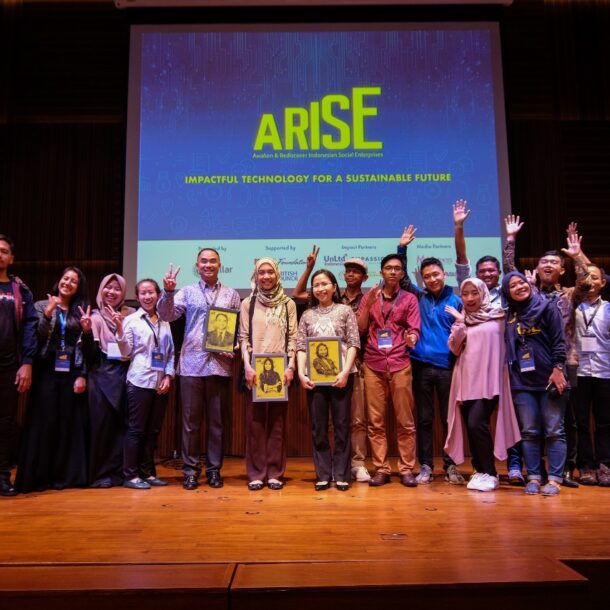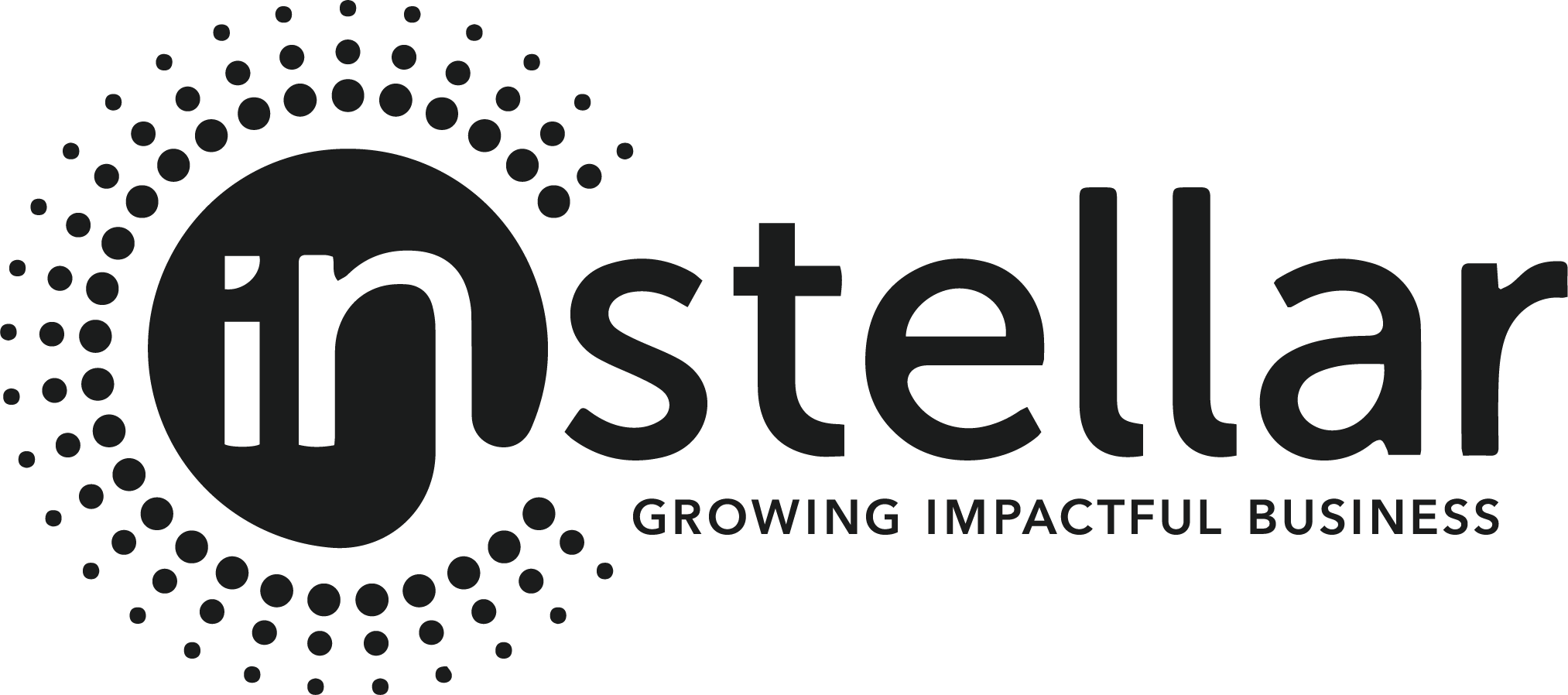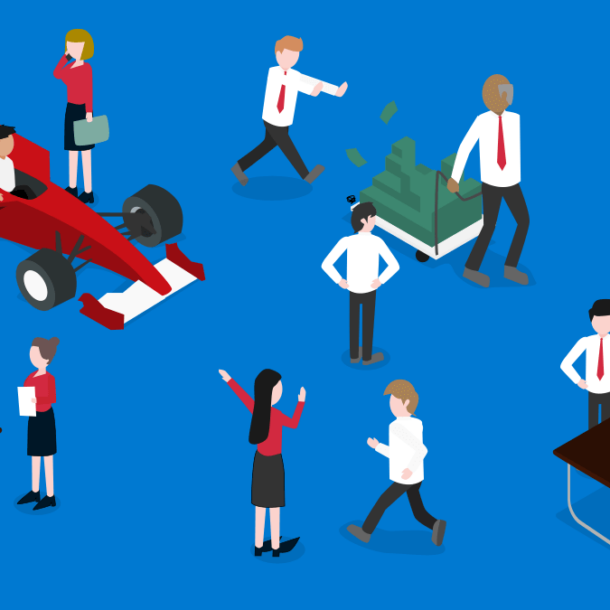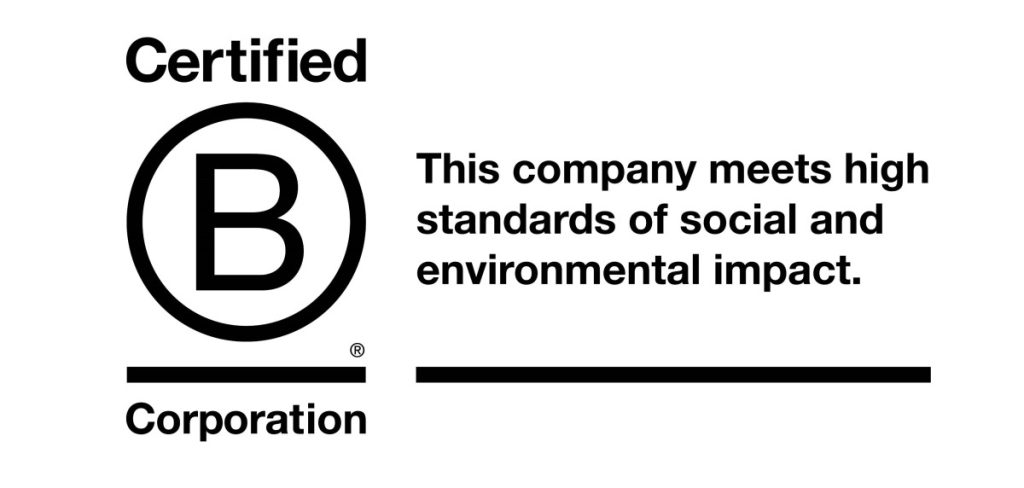
Dian Wulandari: COO & Co-Founder of Instellar
Tell us a bit about yourself.
I’m Dian Wulandari, co-founder and COO of Instellar. How I got to where I am, it’s a long story. Basically I come from a PR & Marketing background. The last job I had was COO of Marketeers, a media and communications company focusing on youth. We did projects on oil, coal mining, DDI, and an NGO as well. I’m also a big believer in technology; I’m the woman lead of Google Business Group Jakarta – a community supported by Google.
Because I’m a believer in technology, I’m also an early adopter of tech. I used Google while it was still in beta testing. I even used GO-JEK when it didn’t have an app yet – you had to dial a call center to ask for a bike to pick you up. That’s how I got into this startup business. Even though I’ve worked at different companies, I always do two to three months of sabbatical each year to work for non-profit organizations and to do volunteer work. I’ve found that my passion is to help people. But I still have to pay the bills, right? So I go back to work.
I always wanted to have this balance – you want to do good but you want to make money also. And then I heard about the term “social enterprise” – a way to balance social and business. I co-founded Instellar with four partners. It is basically an ecosystem builder, trying to build an ecosystem where everyone can be a social enterprise. Well, I don’t really like the term social enterprise actually. My vision is that in the future there is no such thing as social enterprise. Every company should be responsible to the environment, to society. You don’t have to categorize.
We’re thinking that as an ecosystem builder we can’t just focus on one stage of entrepreneurs. We have to tap into different stages of businesses to make an ecosystem. If your goal is to achieve a vision where everyone is a social enterprise, when everyone is taking care of the planet and its people – it’s not going to work if you’re only focusing on the prototyping stage. We have to do it all as an ecosystem builder. That’s why we created Instellar.
In terms of creating a more socially-minded ecosystem, what work remains to be done?
I do think the first barrier we need to tackle is to stop looking at money as evil. If you have that mindset, you will think that having a profit is not the same as having an impact. Actually, that’s not the case – we can do both. I think that’s the first barrier we need to tackle. You know what they say about money being the root of all evil? Well I think that it’s actually the lack of money that is a root of evil. You can have profit and do good – the two are not mutually exclusive.
Instellar doesn’t only focus on early social enterprises. We do have to give consideration to big corporations as well. Take Ben and Jerry’s, for instance. They’re making good impact. They don’t use GMO products, they have a good business process, good business model, they make profit. I think these big companies also have to be shown in our publications, conversations, and awareness. Stop thinking about these big corporations as these evil, profit-creating entities. That’s the first barrier we have to tackle. Yes, there have to be better regulations and incentives – but it’s the mindset that we have to break down first. Having money and profit means you can do more.
On one hand, we have to shift profit-makers to making impact. On the other hand, we must also work with impact-makers to sustain themselves through business. It’s a balance between profit and purpose. From my experience, it’s harder for the impact entities to go to the middle than for the profit side. So we did have an experience incubating this NGO. Very good, very impactful, the team was also good. They wanted to change, they wanted to have a business model. Their operations of just asking for grants wasn’t sustainable. They really wanted to, but their mindset was very hard to change. For instance, when we asked them to increase the price they were reluctant.They felt it was hard for people to buy at a higher price. But actually for the same price it was very hard for them to grow. That’s the mindset.
In general, there are fewer women entrepreneurs in relation to other entrepreneurs, but there seems to be a lot of women entrepreneurs in social entrepreneurship. Why do you think that is?
Yeah, it’s true. There’s a growing trend in social entrepreneurs led by women. For example, we currently incubate 78 social entrepreneurs. Last year the proportion was 60% male-led, 40% female-led. This year it is 55% female-led and 45% male-led. So that’s a growing trend. Why? One, because again the global movement is different now. There is a lot of momentum in giving more chances for women to become entrepreneurs. And we do find that when women create something, they do it not just for themselves but also for their families. And women tend to be the decision-makers of the family. They’re thinking about others. It’s a common research topic – McKinsey and a few other consultancies have findings on it. I don’t know if it’s a stereotype or not, but I do think that women tend to think more about impact – not just about profit. That’s why a lot of social entrepreneurs are being led by women, and it’s coming from their hearts and solving problems in their societies.
One example: there’s Kostoom, an app for tailors to find customers. The founder, who is female, created it because her mother was a tailor. She found it was getting harder for traditional tailors to find customers. Since she knows tech, she created an app for it.
Do you think there is a greater focus on women in the startup space?
I think we are creating more opportunities for women. People are recognizing that there are more and more women-focused programs in accelerators that are being held in Jakarta, in Indonesia, and globally. I do think there’s a thin line between women’s empowerment and discrimination against men. A lot of people are asking, “Why only women? How about men?” Well, men already have all these facilities and everything, you can join it if you want to. The bottom line is that there are several things that women need to learn specifically. That are different. Problems that are different from what men are facing.
For example?
For example, being judged by your appearance. And then also this is a personal experience, but sometimes if your counterpart is male, they will sometimes hit on you. For other people it’s hard to draw a line between personal and professional.
But I think the bigger barrier for women is coming from within. One is the confidence level. I don’t know why – being in society, being in the patriarchy, it makes women more timid. For some of us, it doesn’t come naturally to speak their opinions – unlike men – because we are afraid of being judged. So that confidence level and fear of being judged…you don’t know what you think of yourself and you care about what others think. We’re born to this kind of society where we have this perception of what women should do.
Do you have any specific challenges you’ve faced as a woman in your industry?
I had problems while I was still new in Marketeers. I had joined the company for one year. I was in charge of everything. People talked about me, saying I’m a new kid, I’m female. People also judge their bosses differently when it comes to gender. When a male boss is meticulous, they call it “detail-oriented.” When it’s a woman, they call it “ribet (complicated/fussy) ”. Some women think about that and take it into consideration. They spend their time working on relationships instead of working on their professional goals. That’s one of the challenges of being a female.
When I talk to a lot of investors, some investors prefer to invest in women. They say that women are more reliable. They set realistic goals compared to their male counterparts. But the problem is that these females don’t want to be invested in. They don’t want to grow a bigger company. Why? Because one, confidence level. They don’t know if they can manage it, they don’t know if they can fulfill investor demands. Meanwhile, their male counterparts are more confident.
That’s why we have our workshops and trainings that focus on women. It’s not about business, it’s about soft skills. We teach them about unconscious bias, because it’s not just about men that harbor them. We as women have unconscious biases as well. Sometimes, women are also more judgmental to other women than to men. So before we change the world, we have to change ourselves first.
Do you have any advice for other girls who are facing those same confidence issues? How can we begin to overcome gender biases?
The short answer will be that when people say I’m bossy, I say, “OK, I’m the boss. So what?” I’m not bossy, I’m the boss. So just embrace it. It’s actually from my own experience. Once, I heard some of my subordinates calling me bossy behind my back. It hurt me from the very beginning. I thought to myself, what should I do? Should I be nice to them? It was important for me to get their approval. What I didn’t realize was that it was important for me to get the approval from them professionally. What they think about me, it’s not something I can change. What I can change is myself, how I interact with them.
You should recognize your own talent. Recognize your own talents and skills. Be humble, but be proud of yourself. For a lot of females it’s hard to take compliments. When you say, “You’re doing a good job,” their immediate answer is “The team is working on it, it’s not me, we’re working on it together.” Learn to say thank you. Embrace it. Be mindful but be proud of yourself. And learn how to say no. These tips sound simple, but try to practice it in your life. You’re good. You just have to believe in yourself.
How do we get to the point of creating a world where all businesses have social aspects when we live in a world where the system rewards revenue and not impact?
Well, I’d like to disagree with that. Because I think the world trend is going towards our direction. Yes, on the investment side they want to make bigger and faster profits. But I do think there is a shift in the global consensus as well when it comes to being socially conscious. Like the movement in San Francisco – all of those tech companies have high profit, but they do think about the welfare of the company, their employees, and the need to live a balanced life. To be a social enterprise, you not only need to be socially conscious about the world, but also about your employees as well. That has to be one of your considerations. It doesn’t matter if you’re giving a lot to society if you have modern slaves in your company. So I do think that the trend is going there.
The trend is going there in other ways. For example, governments around the world are now recognizing social enterprises. They give incentives – tax incentives. In Indonesia, we haven’t gotten those incentives. The latest case I know is Vietnam, where they have very good tax incentives for social entrepreneurs. We also see the B Corporation movement, which is going big and going global. I see a lot of big corporations are joining that movement and want to do good for the world.
Source: ANGIN Newsletter
by Meredith Peng | May 11, 2018 | Women Spotlight, Women Stories
angin.id/2018/05/11/dian-wulandari/
Instellar Indonesia
V-Office District 8, Treasury Tower Lt.6 Unit F
Jl. Jend. Sudirman Kav. 52-53, SCBD Lot.28
Jakarta 12190
Dapatkan akses peluang eksklusif dan wawasan industri
dengan berlangganan ke newsletter kami!
Copyright © 2017 – 2025 Instellar.
All rights reserved.
Instellar Indonesia
V-Office District 8, Treasury Tower Lt.6 Unit F
Jl. Jend. Sudirman Kav. 52-53, SCBD Lot.28
Jakarta 12190
Dapatkan akses peluang eksklusif dan wawasan industri
dengan berlangganan ke newsletter kami!
Copyright © 2017 – 2025 Instellar. All rights reserved.


